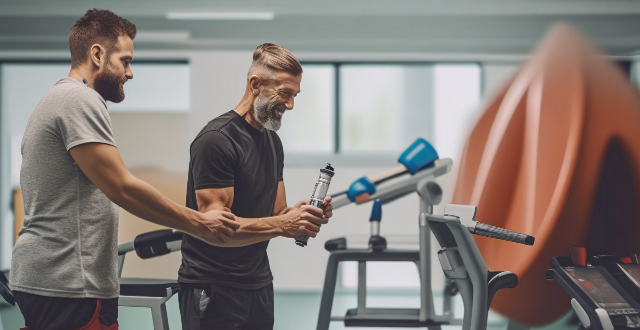Sports have been recognized as a powerful tool for enhancing self-esteem and confidence. This is because they provide opportunities for individuals to challenge themselves, achieve goals, and develop a sense of accomplishment. In this article, we will explore the various ways in which sports can contribute to these positive outcomes. Firstly, engaging in sports can lead to improved physical health, which in turn can boost self-esteem and confidence. Secondly, sports can also have a positive impact on mental health by releasing endorphins that reduce symptoms of depression and anxiety. Thirdly, participating in group activities can help individuals develop communication skills and build relationships with others who share similar interests. Fourthly, achieving goals in sports can lead to a sense of accomplishment and pride that translates into other areas of life. Finally, overcoming challenges in sports can teach individuals valuable lessons about resilience and determination. Overall, sports play a significant role in improving self-esteem and confidence by providing opportunities for physical health benefits, mental health improvements, social interaction, goal setting and achievement, and overcoming challenges.

The Role of Sports in Improving Self-Esteem and Confidence
Sports have been recognized as a powerful tool for enhancing self-esteem and confidence. This is because they provide opportunities for individuals to challenge themselves, achieve goals, and develop a sense of accomplishment. In this article, we will explore the various ways in which sports can contribute to these positive outcomes.
Physical Health Benefits
Firstly, engaging in sports can lead to improved physical health, which in turn can boost self-esteem and confidence. Regular exercise has been shown to reduce the risk of chronic diseases such as heart disease, diabetes, and obesity. By maintaining good physical health, individuals are more likely to feel good about themselves and their abilities.
Mental Health Benefits
Secondly, sports can also have a positive impact on mental health. Engaging in physical activity releases endorphins, which are natural mood boosters. This can help to reduce symptoms of depression and anxiety, leading to increased self-esteem and confidence. Additionally, sports provide an outlet for stress relief and can help individuals develop coping mechanisms for dealing with difficult situations.
Social Interaction
Thirdly, sports offer opportunities for social interaction and teamwork. Participating in group activities can help individuals develop communication skills and build relationships with others who share similar interests. This sense of belonging and camaraderie can contribute to increased self-esteem and confidence.
Goal Setting and Achievement
Fourthly, sports provide opportunities for goal setting and achievement. Whether it's winning a game or improving personal performance, achieving goals in sports can lead to a sense of accomplishment and pride. This can translate into other areas of life, such as academics or career pursuits, further enhancing self-esteem and confidence.
Overcoming Challenges
Finally, sports often involve overcoming challenges and obstacles. Whether it's learning a new skill or pushing through physical fatigue, persevering in sports can teach individuals valuable lessons about resilience and determination. These qualities can be applied to other areas of life, helping individuals build self-esteem and confidence in their ability to overcome adversity.
In conclusion, sports play a significant role in improving self-esteem and confidence by providing opportunities for physical health benefits, mental health improvements, social interaction, goal setting and achievement, and overcoming challenges. By participating in sports, individuals can develop a sense of accomplishment, belonging, and resilience that extends beyond the playing field and into other aspects of their lives.